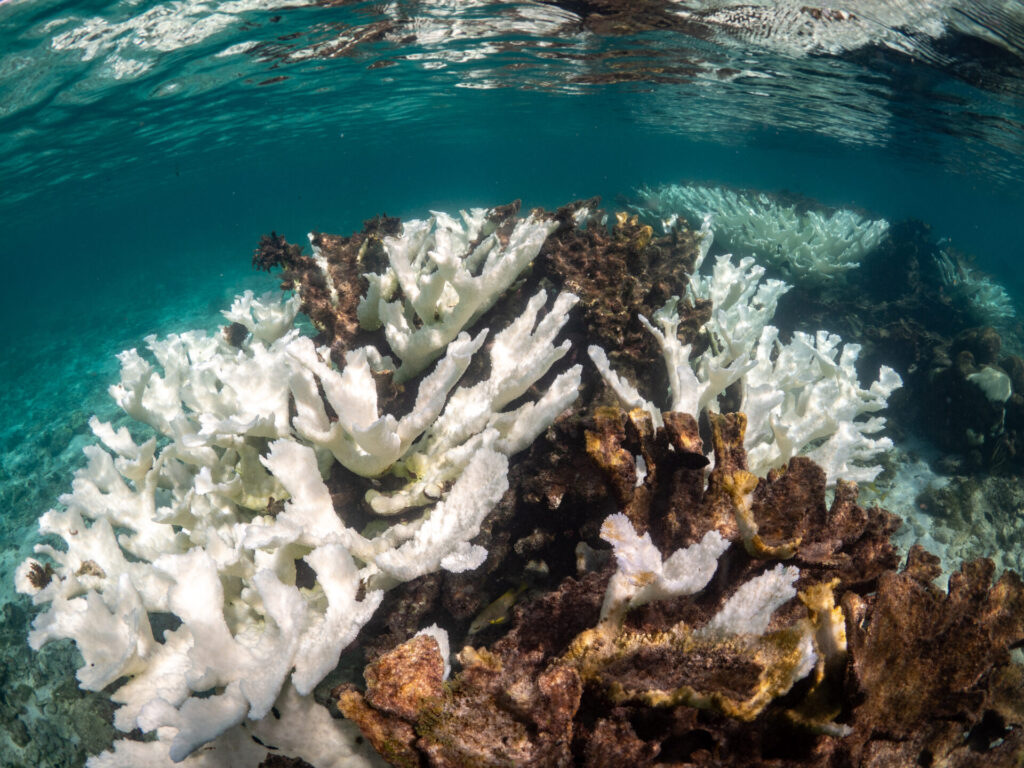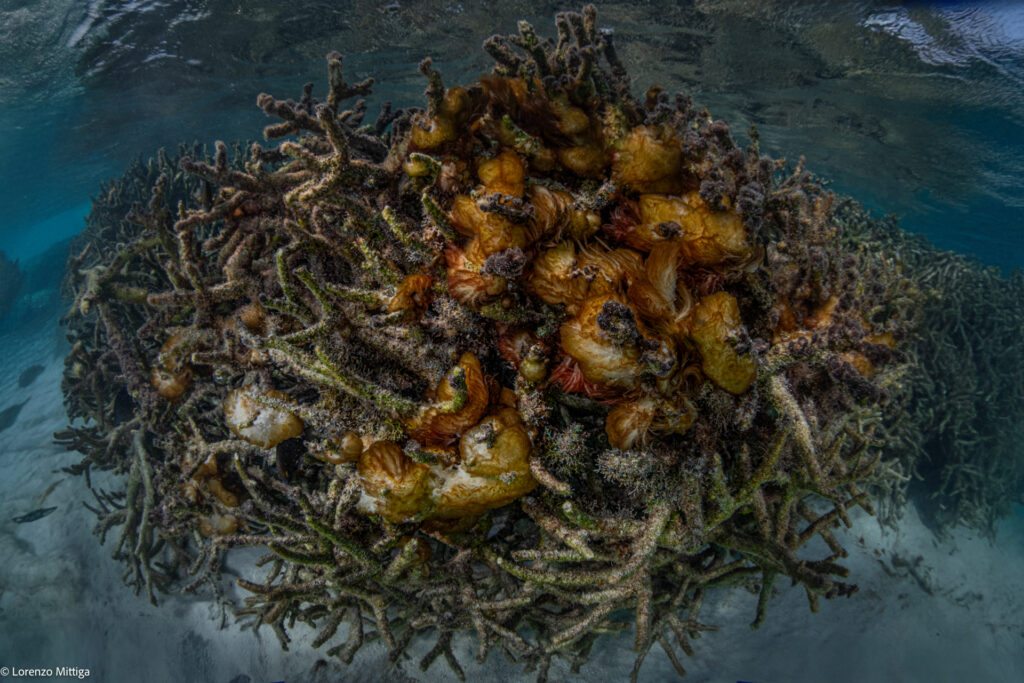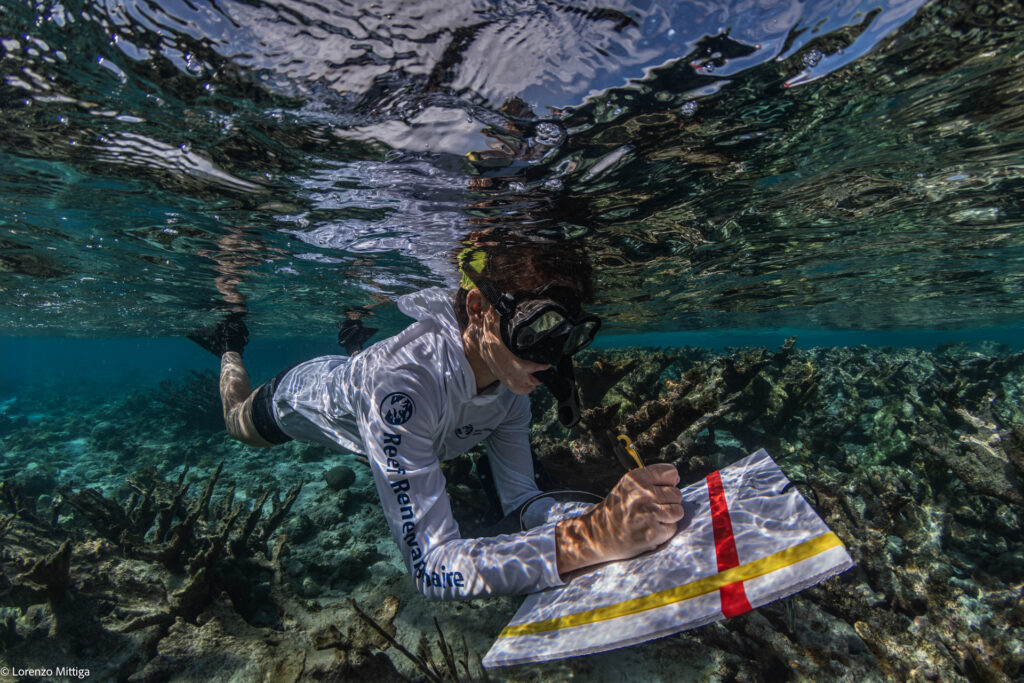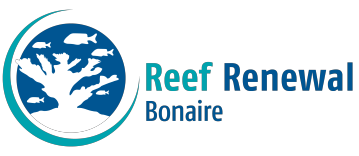Caribbean coral reefs, including Bonaire’s, have experienced unprecedented bleaching in the past two years, driven by record-high ocean temperatures that threaten the survival of nearly all species in the region. Reef Renewal Foundation Bonaire (RRFB) is growing heat-resilient corals to strengthen vulnerable populations and help them survive mounting challenges. To scale up its response to bleaching, disease, and hurricanes, RRFB urgently needs land to establish an on-land breeding facility.
20 December 2024
(Bonaire, Dutch Caribbean) In the past two years, coral reefs in the South Caribbean have faced significant challenges. Record-high ocean temperatures in 2023 and 2024— the hottest two consecutive years on record—have triggered severe coral bleaching across the region.1
According to a 7-year study by STINAPA Bonaire, the percentage of corals affected by thermal stress rose dramatically from 25% in 2016 to over 80% in 2023 (Eckrich et al., 2024).2 The scale of bleaching is evident across reefs around the island, with widespread impacts on nearly every coral species.
The scale of bleaching over the past 2 years is nothing short of unprecedented. Coupled with the spread of Stony Coral Tissue Loss Disease (SCTLD), first detected on the island in March 2023, Bonaire’s once-thriving reefs are now under extraordinary pressure.
In response, Reef Renewal Foundation Bonaire (RRFB) is working to strengthen coral populations at a biological level and build resilience against these threats.

“Selective propagation allows us to pinpoint coral strains that demonstrate natural tolerance to stress, and multiply them through fragmentation and breeding,”
– Sanne Tuijten, RRFB Science Officer
During peak bleaching season, RRFB ramps up monitoring efforts to identify resilient coral colonies. Between October and December, their team spent over 150 hours surveying 25 reef sites around the island in search of “super corals.” Once identified, they are grown in nurseries, outplanted to the reef, and integrated into RRFB’s coral breeding program to pass on their resilient traits to the next generation.
While these efforts have made a significant impact, RRFB urgently needs an on-land nursery facility to combat bleaching, disease, and other stressors effectively.
“An on-land facility is not just about expanding our breeding and fragmentation work—it’s about having the tools to act quickly and effectively now that our reefs are under threat. Without it, our ability to respond to crises is severely limited.”
– Sanne Tuijten, RRFB Science Officer

Equipped with seawater tanks, this facility would provide a controlled environment for coral breeding, fragmentation, and research. It would also allow for the emergency relocation of corals during storms or disease outbreaks. The facility would serve as an educational hub, hosting researchers and student groups to advance restoration efforts.
Many coral restoration organizations across the Caribbean have already established on-land facilities. Although RRFB has the funding and blueprints for a Bonaire facility, finding and securing suitable coastal land has been a major hurdle for several years.
As bleaching, disease, and other challenges threaten Caribbean reefs, RRFB’s work is more important than ever. The organization continues to adapt, innovate, and refine its techniques, including selective propagation, to strengthen vulnerable coral populations. With community support, RRFB can lay the groundwork for a more resilient future for Bonaire’s coral reefs.

About Reef Renewal Foundation Bonaire
Reef Renewal Foundation Bonaire is a non-profit organization focused on the protection and restoration of Bonaire’s coral reefs as they face mounting challenges. In collaboration with research partners and regional practitioners, RRFB uses science-backed techniques to enhance the abundance and genetic diversity of vulnerable coral populations in Bonaire. Today, with the help of 14 partner dive operators around the island and a dedicated team of volunteers, RRFB has outplanted over 60,000 corals back to the reef, restoring an area of over 13,000 square meters.
To learn how to get involved or lend support, please visit www.reefrenewalbonaire.org or email info@reefrenewalbonaire.org
Photos and Captions
Please contact caitie@reefrenewalbonaire.org to request high-resolution versions of all images

